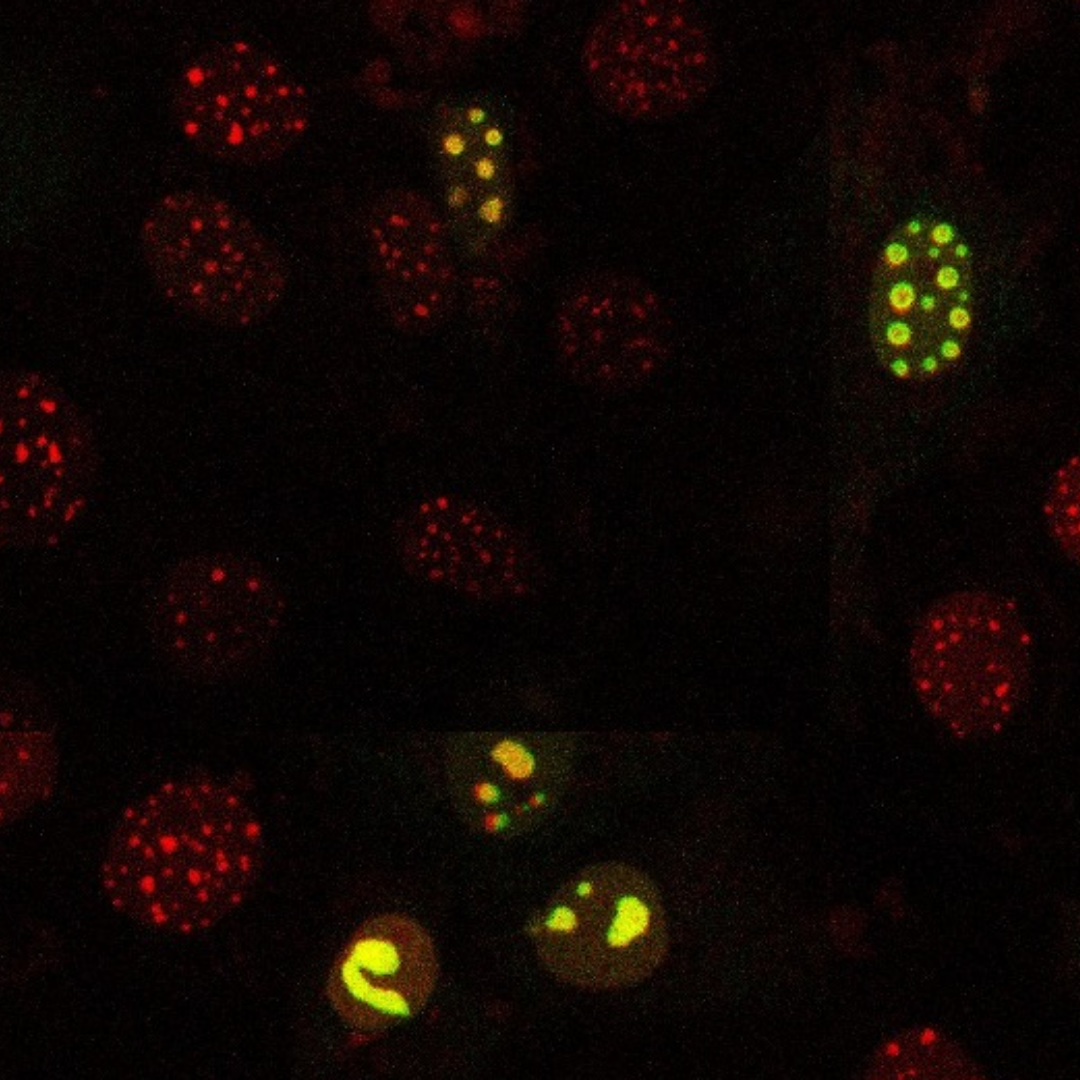
Evolutionary adaptation of heterochromatin phase separation

- research
The formation of biomolecular condensates has emerged as a mechanism behind many cellular processes that are dysregulated in disease. The faithful formation and maintenance of heterochromatin is one of them. Based on observations across different model systems including fission yeast, fly, mouse and human, heterochromatin formation has been suggested to be driven by liquid phase separation of heterochromatin protein 1 (HP1) or not. To resolve this controversy, we compared HP1 homologs from different species side-by-side in the test tube and in mammalian cells. We found that HP1 from fission yeast and fly are more disordered and have a higher propensity to form condensates than mammalian HP1. We also found that mammalian cells contain large amounts of HP1 paralogs that antagonize phase separation, which is not the case in fission yeast and flies. Condensate formation of ectopically expressed fly HP1 in mouse cells induced the spatial reorganization of heterochromatin, showing that phase separation of a chromatin-associated protein can indeed control nuclear architecture. Gene expression was only mildly altered in cells with reorganized heterochromatin. Our results suggest that the biophysical properties and the cellular function of HP1 differ across species, pointing to an evolutionary switch in heterochromatin regulation.